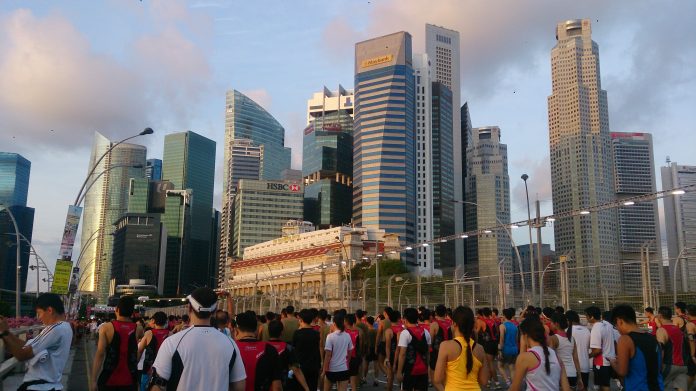Most workers in Singapore have begun trudging back to their workplaces, but there remains a gap between how many remote days employees expect and bosses are willing to offer. Almost 80% of Singapore workers are showing up on mandated days, more than the global average of 75%, according to a report by workplace strategy and design firm Unispace.
Public transport journeys to the central business district during weekday morning peak hours in the first half of this year have hit 75% of 2019’s volume, according to Land Transport Authority figures. But for most workers, return to office, or RTO, as it has come to be called, will never rebound to the pre-pandemic frequency of five work days, say workplace experts.
Still, the discord between employers and workers over the call-back in the past year continues to simmer. Associate professor of organisational behaviour at business school Insead, Dr Mark Mortensen, said: “Conversations are going past one another.” Workers and bosses need to get aligned on goals, whether it is to boost productivity, attract and retain talent, or to preserve the social fabric of the organisation, he added. “Each of those may lead to very different choices when it comes to how you design the work and the policies.”
Lauren Huntington, a solutions strategy leader at experience management firm Qualtrics, said organisations tend to obsess over what the “golden number of days” in the office should be. What they should focus on instead is reskilling managers to lead teams in the new work environment. “The old way of thinking, where time in the office is a reflection of dedication, loyalty and competence is no longer valid, and businesses need to focus on the outcomes of work,” she said. The reasons for wanting to stay in, or out of, the office are often misunderstood by both sides.
From its survey, Unispace reported that a majority of Singapore respondents – 53% of employers and 51% of employees – expect to be called back to the office for at least four days a week by 2025. But of the 40% who now troop into the office more than four days a week, just 26% said they were happy to do it. In the report, 68% of employees also said they struggled to do their core job in the office, with the lack of privacy and quiet interfering with their productivity.
But bosses believe that employees are resisting the return because of the commute and the lure of healthier meals at home, the report found. About 88% of workers said subsidised travel would persuade them back, adding to mixed signals that led a majority of employers surveyed to fret that employees are fickle about what they want.
In the United States, a strike at Amazon, a public petition at Apple, dedicated anti-RTO Slack channels and in-your-face resignations have played out in defiance of RTO calls made by bosses, including Tesla’s Elon Musk, JPMorgan Chase’s Jamie Dimon and Apple’s Tim Cook.
Such drama is unlikely to happen in Singapore. Associate professor Trevor Yu, who teaches management and organisation at Nanyang Technological University, said: “We do not have a strong history of public industrial action in Singapore.”
— The Straits Times/ANN



















